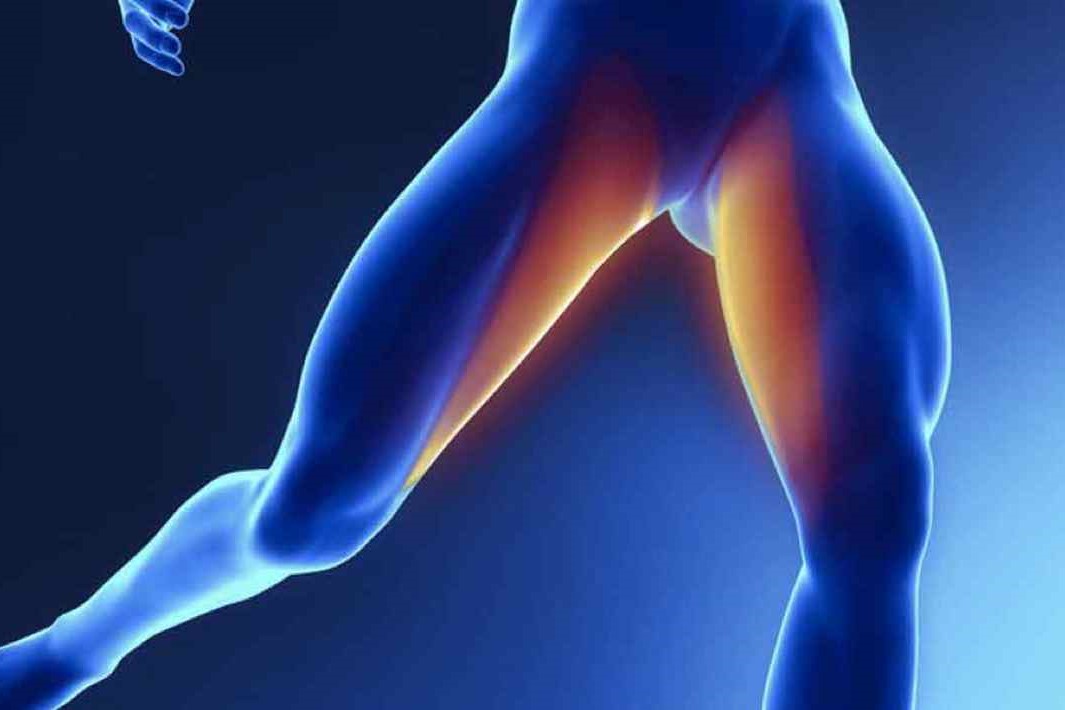
Pubalgia: what it is and what symptoms it manifests itself with
In medicine, the term pubalgia refers to a painful syndrome of the pelvic girdle, which falls under ‘overload pathologies’, i.e. all those pathologies caused as a result of repeated overloading of a certain body district
It is a muscular pain – more or less intense depending on the degree of severity of the injury – that affects the muscles of the lower and frontal area of the abdomen, the pubic area and the inner thigh.
Generally, pubalgia, whatever its nature, manifests itself with pain – more or less intense – in the hip, groin, joints and lower abdominal muscles.
Pubalgia: what causes it and who suffers from it
Pubalgia affects, in particular, sportsmen and women who, as they carry out continuous, high-intensity activities, are prone to intense and continuous use of the lower limbs.
The sports most at risk for the development of this pathology are football, tennis, fencing, handball, dancing, horse riding and all sports with a comparable muscular effort.
This pathology also affects another category, different from the first: pregnant women.
During the gestation period, especially during the last few months, it is not uncommon to develop this fatigue syndrome as the foetus, now of considerable size and weight, overloads the muscles of the lower abdomen.
Different forms of pubalgia
The aetiology of pubalgia is very varied.
Nevertheless, it is possible to group the causes of pubalgia into three macro-categories.
Insertional Tendinopathy
Insertional tendinopathy or rectus adductor syndrome – the most common form of pubalgia – occurs due to repeated microtrauma to the thigh adductor and abdominal muscles.
The critical point at which the subject will experience a greater sensation of pain is, in this case, the pubic sphincis.
Symphyseal syndrome
Symphyseal syndrome refers to the partial failure of the sphincis pubis, a fibro-cartilaginous joint that is located in the centre of the pelvis and which, due to its elasticity, allows the foetus to pass freely during the final stage of delivery.
When this is subjected to excessive pressure during gestation, it can be subject to relaxation, which can cause pain, especially during walking.
Rectus femoris sheath syndrome
The term ‘rectus femoris sheath syndrome’ or ‘rectus abdominis perforating nerve syndrome in football players’ refers to an abnormal elongation of the perforating nerve sheath, which can become inflamed, giving rise to painful symptoms.
Pubalgia: how to treat inflammation
Whatever the cause of this overload condition, the patient diagnosed with pubalgia must necessarily take a period of rest in order to prevent the inflammation from becoming chronic.
Only then can he or she undergo medical treatment with anti-inflammatory or corticosteroids, accompanied – if necessary – by physiotherapy with targeted stretching, lengthening, pelvic rebalancing and proprioception exercises.
Read Also
Emergency Live Even More…Live: Download The New Free App Of Your Newspaper For IOS And Android
Pubalgia: Diagnosis And Treatment
Pubalgia, What It Is And How To Treat It
How Are Prosthetic Infections Treated?
Femoroacetabular Impingement (FAI): Treatment And Recovery
Knee Pathologies: The Synovial Plica
Rotator Cuff Injury: What Does It Mean?
Tendon Injuries: What They Are And Why They Occur
Elbow Dislocation: Evaluation Of Different Degrees, Patient Treatment And Prevention
Cruciate Ligament: Watch Out For Ski Injuries
Sport And Muscle Injury Calf Injury Symptomatology
Meniscus, How Do You Deal With Meniscal Injuries?
Meniscus Injury: Symptoms, Treatment And Recovery Time
First Aid: Treatment For ACL (Anterior Cruciate Ligament) Tears
Anterior Cruciate Ligament Injury: Symptoms, Diagnosis And Treatment
Work-Related Musculoskeletal Disorders: We Can All Be Affected
Patellar Luxation: Causes, Symptoms, Diagnosis And Treatment
Arthrosis Of The Knee: An Overview Of Gonarthrosis
Varus Knee: What Is It And How Is It Treated?
Patellar Chondropathy: Definition, Symptoms, Causes, Diagnosis And Treatment Of Jumper’s Knee
Jumping Knee: Symptoms, Diagnosis And Treatment Of Patellar Tendinopathy
Symptoms And Causes Of Patella Chondropathy
Unicompartmental Prosthesis: The Answer To Gonarthrosis
Anterior Cruciate Ligament Injury: Symptoms, Diagnosis And Treatment
Ligaments Injuries: Symptoms, Diagnosis And Treatment
Knee Arthrosis (Gonarthrosis): The Various Types Of ‘Customised’ Prosthesis
Rotator Cuff Injuries: New Minimally Invasive Therapies
Knee Ligament Rupture: Symptoms And Causes
MOP Hip Implant: What Is It And What Are The Advantages Of Metal On Polyethylene
Hip Pain: Causes, Symptoms, Diagnosis, Complications, And Treatment
Hip Osteoarthritis: What Is Coxarthrosis
Why It Comes And How To Relieve Hip Pain
Hip Arthritis In The Young: Cartilage Degeneration Of The Coxofemoral Joint
Visualizing Pain: Injuries From Whiplash Made Visible With New Scanning Approach
Coxalgia: What Is It And What Is The Surgery To Resolve Hip Pain?
Lumbago: What It Is And How To Treat It
Lumbar Puncture: What Is A LP?
General Or Local A.? Discover The Different Types
Intubation Under A.: How Does It Work?
How Does Loco-Regional Anaesthesia Work?
Are Anaesthesiologists Fundamental For Air Ambulance Medicine?
Epidural For Pain Relief After Surgery
Lumbar Puncture: What Is A Spinal Tap?
Lumbar Puncture (Spinal Tap): What It Consists Of, What It Is Used For
What Is Lumbar Stenosis And How To Treat It
Lumbar Spinal Stenosis: Definition, Causes, Symptoms, Diagnosis And Treatment
Cruciate Ligament Injury Or Rupture: An Overview
Haglund’s Disease: Causes, Symptoms, Diagnosis And Treatment
Osteochondrosis: Definition, Causes, Symptoms, Diagnosis And Treatment
Osteoporosis: How To Recognise And Treat It
About Osteoporosis: What Is A Bone Mineral Density Test?
Osteoporosis, What Are The Suspicious Symptoms?
Osteoporosis: Definition, Symptoms, Diagnosis And Treatment
Back Pain: Is It Really A Medical Emergency?
Osteogenesis Imperfecta: Definition, Symptoms, Nursing And Medical Treatment
Exercise Addiction: Causes, Symptoms, Diagnosis And Treatment
Osteoarthrosis: Definition, Causes, Symptoms, Diagnosis And Treatment



